I have a one-question survey that will reveal with near perfect accuracy whether or not you are an individualist. Set? Here it is: Would you readily consider allowing your parents to arrange a marriage for you?
Those of us from a Western culture would never give this the slightest bit of serious consideration. But in collectivist cultures (which make up the majority of the world), people answer yes to this all the time.
Or perhaps slightly less dramatically, what about this? Would you expect your extended family to decide where you go to college? Maybe your nuclear family but definitely not your extended family. Right? Yet this is common in Latino/a and Asian societies.
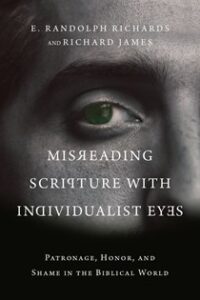 For individualists, a collective culture is, well, like being in a foreign country. And that’s why, as the authors of Misreading Scripture With Individualist Eye contend, we so often misunderstand the Bible which comes out of collective cultures. We persistently read it through the lens of our own individualistic mindset.
For individualists, a collective culture is, well, like being in a foreign country. And that’s why, as the authors of Misreading Scripture With Individualist Eye contend, we so often misunderstand the Bible which comes out of collective cultures. We persistently read it through the lens of our own individualistic mindset.
With many stories of their own experiences in the Middle East, Asia, and elsewhere, the authors unpack how kinship, patronage, brokering, honor, shame, and boundaries are all hidden in plain sight in the Bible. A few examples.
Why does Matthew spend all that time laying out Jesus’ genealogy? Because honor often comes from your family, your family’s history, who you are related to. To be descended from Abraham and David brings great honor (Mt 1:1).
Why does Nicodemus come alone at night to talk with Jesus? Not because he feared the other Pharisees. Rather he didn’t want to inadvertently shame Jesus publicly by asking a question that might be seen as a challenge to a teacher he clearly respected (Jn 3:2).
When Jacob gives Rachel’s son, Joseph, the multicolored coat, the other sons aren’t jealous because he got a better Christmas gift? No. It was much more serious. They realized this meant Joseph was going to be treated as the first-born and get their father’s inheritance. They were angry that their side of the family (all being sons of Leah) would be dependent on Joseph’s generosity, which seemed unlikely from this arrogant kid. This is not an individual’s rags-to-riches story. It is a story of kinship and family reconciliation. Both sides forgive the other for the wrongs they did.
The discussion on shame is especially illuminating because we often only have one definition of shame, and it’s bad—something to always be avoided. But in Scripture and much of the world, there is also a good kind of shame that seeks to nudge people in the community back into proper behavior. It’s kind of like our conscience. Having a sense of shame beforehand can keep us from acting wrongly, not just feel bad after acting wrongly. The book offers multiple examples of when shame creates a path for restoration—which is good shame. When it seeks to exclude and cut others off, that is bad shame.
 From a Western perspective, we might see patronage as creating unhealthy dependence, even being oppressive. But those inside see it as providing protection, meeting needs, giving security. Yes, it can be abused, but the problem then is not the system but the people in it.
From a Western perspective, we might see patronage as creating unhealthy dependence, even being oppressive. But those inside see it as providing protection, meeting needs, giving security. Yes, it can be abused, but the problem then is not the system but the people in it.
Our lack of a corporate sense can minimize our commitment to the church and even to family that the Old and New Testaments assume. I am not just saved, you see. The Bible says I am also saved into a community.
The point of the book is not to expunge our individualism. That wouldn’t be possible in any case. Rather, we have much to learn about what the Bible is really saying by putting on collectivist glasses. And we have much to learn about living biblically from our brothers and sisters in the faith who come from such backgrounds.
—
I received a prepublication complimentary copy of this book from the publisher. The opinions here are my own.
credit: Joseph Redfield Nino from Pixabay
 When a friend gave me his book, one of the most beautiful and profound works I’ve read, he wisely suggested I savor a few pages at a time. The depth of each page, of each paragraph, of each sentence made it worthwhile to do just that. Over the period of a few months I sojourned through this book.
When a friend gave me his book, one of the most beautiful and profound works I’ve read, he wisely suggested I savor a few pages at a time. The depth of each page, of each paragraph, of each sentence made it worthwhile to do just that. Over the period of a few months I sojourned through this book. And this: “Jesus did not say: ‘Listen to the following definition of God. It should be your faith. Blessed are those who believe that their doctrines are holy. They will give you rest.’ Instead he said: ‘Come to me, and learn from me, and you will find rest for your souls.’ ” (244)
And this: “Jesus did not say: ‘Listen to the following definition of God. It should be your faith. Blessed are those who believe that their doctrines are holy. They will give you rest.’ Instead he said: ‘Come to me, and learn from me, and you will find rest for your souls.’ ” (244)
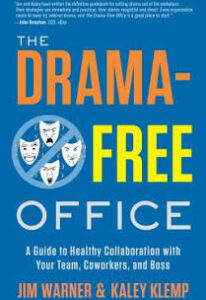

 From a Western perspective, we might see patronage as creating unhealthy dependence, even being oppressive. But those inside see it as providing protection, meeting needs, giving security. Yes, it can be abused, but the problem then is not the system but the people in it.
From a Western perspective, we might see patronage as creating unhealthy dependence, even being oppressive. But those inside see it as providing protection, meeting needs, giving security. Yes, it can be abused, but the problem then is not the system but the people in it.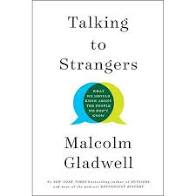
 Gladwell begins and ends the book with the story of Sandra Bland, the 28-year-old African American who in 2015 was stopped for a minor traffic infraction, arrested, and committed suicide in jail three days later. He methodically unpacks the recorded July 10 encounter with State Trooper Brian Encinia.
Gladwell begins and ends the book with the story of Sandra Bland, the 28-year-old African American who in 2015 was stopped for a minor traffic infraction, arrested, and committed suicide in jail three days later. He methodically unpacks the recorded July 10 encounter with State Trooper Brian Encinia.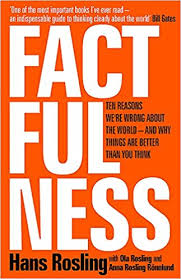
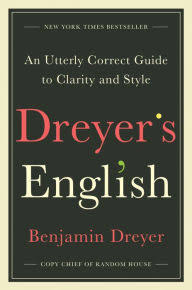
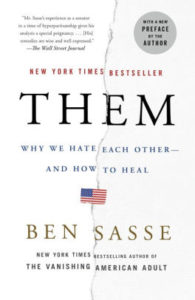
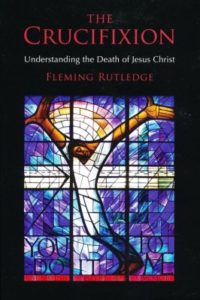
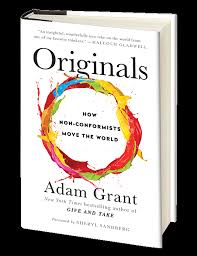
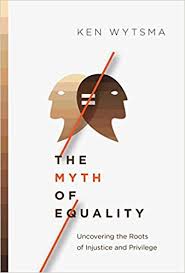
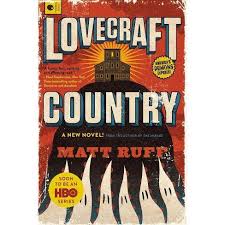
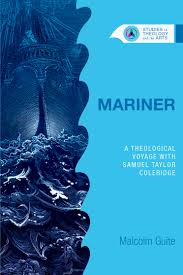
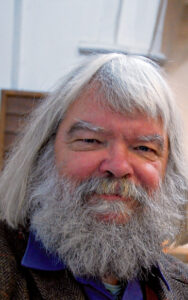 Such was the power of Coleridge’s personality and intellect that even in the midst of his deep struggles he reshaped the way the world saw Shakespeare in a series of landmark lectures. Previously the Bard was viewed as a second-tier talent of popular leanings. After Coleridge we know him to be the premier wielder of not only the English language but of art and life.
Such was the power of Coleridge’s personality and intellect that even in the midst of his deep struggles he reshaped the way the world saw Shakespeare in a series of landmark lectures. Previously the Bard was viewed as a second-tier talent of popular leanings. After Coleridge we know him to be the premier wielder of not only the English language but of art and life. 
 Does all this have anything to do with the gospel? Wytsma quotes Timothy Keller: “Any neglect shown to the needs of the members of the vulnerable is not called merely a lack of mercy or charity, but a violation of justice.” Biblical justice is not just punishing evil doers but restoring what was bent or broken. The cross doesn’t just allow sins to be forgiven but restores relationships. It reconciles us to God and us to each other.
Does all this have anything to do with the gospel? Wytsma quotes Timothy Keller: “Any neglect shown to the needs of the members of the vulnerable is not called merely a lack of mercy or charity, but a violation of justice.” Biblical justice is not just punishing evil doers but restoring what was bent or broken. The cross doesn’t just allow sins to be forgiven but restores relationships. It reconciles us to God and us to each other.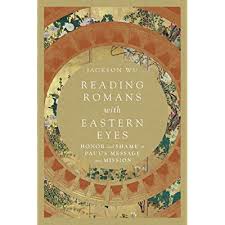
 God’s glory gets particular emphasis in this book. As the author says in his discussion of Romans 4:20-21, “Genuine faith in God magnifies his worth. By faith, we honor him” (48). In this vein Romans often focuses on how God deals with Jews and non-Jews, bringing them both into his family, to glorify him. A Jewish sense of superiority relegates God to a tribal deity. Therefore, “Romans contradicts the idea that ethnic conflict is a second-tier concern for the church” (65).
God’s glory gets particular emphasis in this book. As the author says in his discussion of Romans 4:20-21, “Genuine faith in God magnifies his worth. By faith, we honor him” (48). In this vein Romans often focuses on how God deals with Jews and non-Jews, bringing them both into his family, to glorify him. A Jewish sense of superiority relegates God to a tribal deity. Therefore, “Romans contradicts the idea that ethnic conflict is a second-tier concern for the church” (65).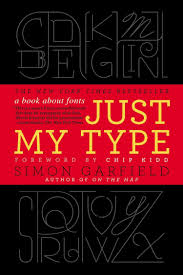
 And how could I have not known that the ampersand (&) is actually an elegant combination of the letters e and t which comprise the Latin word et, meaning “and”? I do now, & am a better person for it.
And how could I have not known that the ampersand (&) is actually an elegant combination of the letters e and t which comprise the Latin word et, meaning “and”? I do now, & am a better person for it.